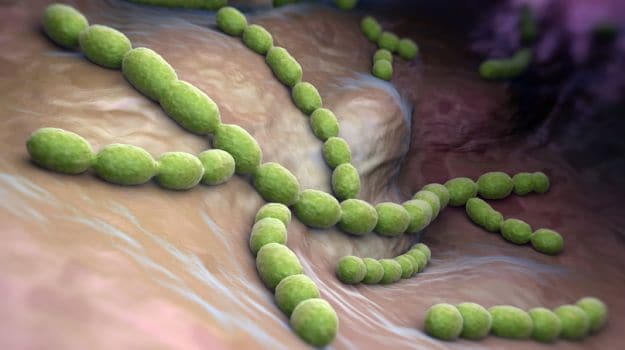Microbes are in, on, and around us in a way that's sort of mind-blowing. It's become clear that these little critters have a lot of influence over the way we live our lives. But just how far back does the relationship between humans and our favorite microbes go? According to one new study, published Thursday in the journal Science, it's a love story older than humanity itself.
"We are showing that some human gut bacteria are the direct descendants of gut bacteria that lived within our common ancestors, with apes," lead researcher Andrew Moeller, a postdoc at the University of California at Berkeley, said in a statement. "It shows there has been an unbroken line of inheritance or transfer from one generation to another for millions of years, since the dawn of African apes."
To tell the story of humans and bacteria, you need just one thing: Poop. In this case, researchers collected samples produced by chimpanzees in Tanzania, bonobos (our other closest cousins) in the Democratic Republic of the Congo, gorillas in Cameroon, and humans in Connecticut.
Moeller and his colleagues studied three bacterial families that are commonly found in humans and primates: Bacteroidaceae, Bifidobacteriaceae and Lachnospiraceae. By analyzing the DNA of the microbes flourishing in these feces, they were able to turn back the evolutionary clock and trace the microbial origins back along the same lines as the primate family tree: In two of the three families, bacterial evolution seems to have branched off in the same places as ape species have, indicating a break between humans and chimps some 5.3 million years ago and a common ancestor between humans and gorillas around 15.6 million years ago. The gut bacteria of our single ancestral African ape has branched off and evolved to serve the needs of our modern species. In other words, just as we share common ancestors with all other apes, our gut bacteria shares common ancestors with the microbes they carry.
"In a way, host speciation is like continental drift: When two continents drift apart, whole biotas begin to diverge," Moeller said. "Here, as the hosts are splitting, a good chunk of their microbiota is also splitting and diversifying."
Lachnospiraceae proved to be an exception, which surprised the researchers. Lachnospiraceae bacteria jumped in and out of different hosts over time, based on the researchers' evolutionary mapping. But this family forms spores that can survive outside of an animal host, allowing the bacteria to move around much more easily.
"This told us that the gut microbiota is an amalgamation of symbionts that evolves strictly with our lineage along with more promiscuous bacteria that jump from host to host," Howard Ochman of the University of Texas at Austin, who co-led the research while Moeller was a student there, told The Post.
Much of our endemic bacteria - including the stuff in our guts - comes from the world around us. It shifts with our diet and lifestyle. We tend to share a lot of bacteria with people we share spaces with, including family members, but just how much is actually passed down from generation to generation remains unclear. But this new research suggests that at least some of the bacteria we're stuck with have been evolving with us for a very long time, likely shaping our diet and immune systems along the way.
"The data are not shocking, but very interesting," New York University's Martin Blaser, who was not involved in the work, told the Scientist. "The study provides strong evidence that the microorganisms in our gut are ancestral rather than a product just of our current environment."
"What's most exciting to me is the possibility that this codiversification between bacteria and hosts could extend much further back in time," Moeller said in a statement. "Maybe we can trace our gut microbes back to our common ancestors with all mammals, all reptiles, all amphibians, maybe even all vertebrates. If that's true, it's amazing."
(c) 2016, The Washington Post(This story has not been edited by NDTV staff and is auto-generated from a syndicated feed.)









